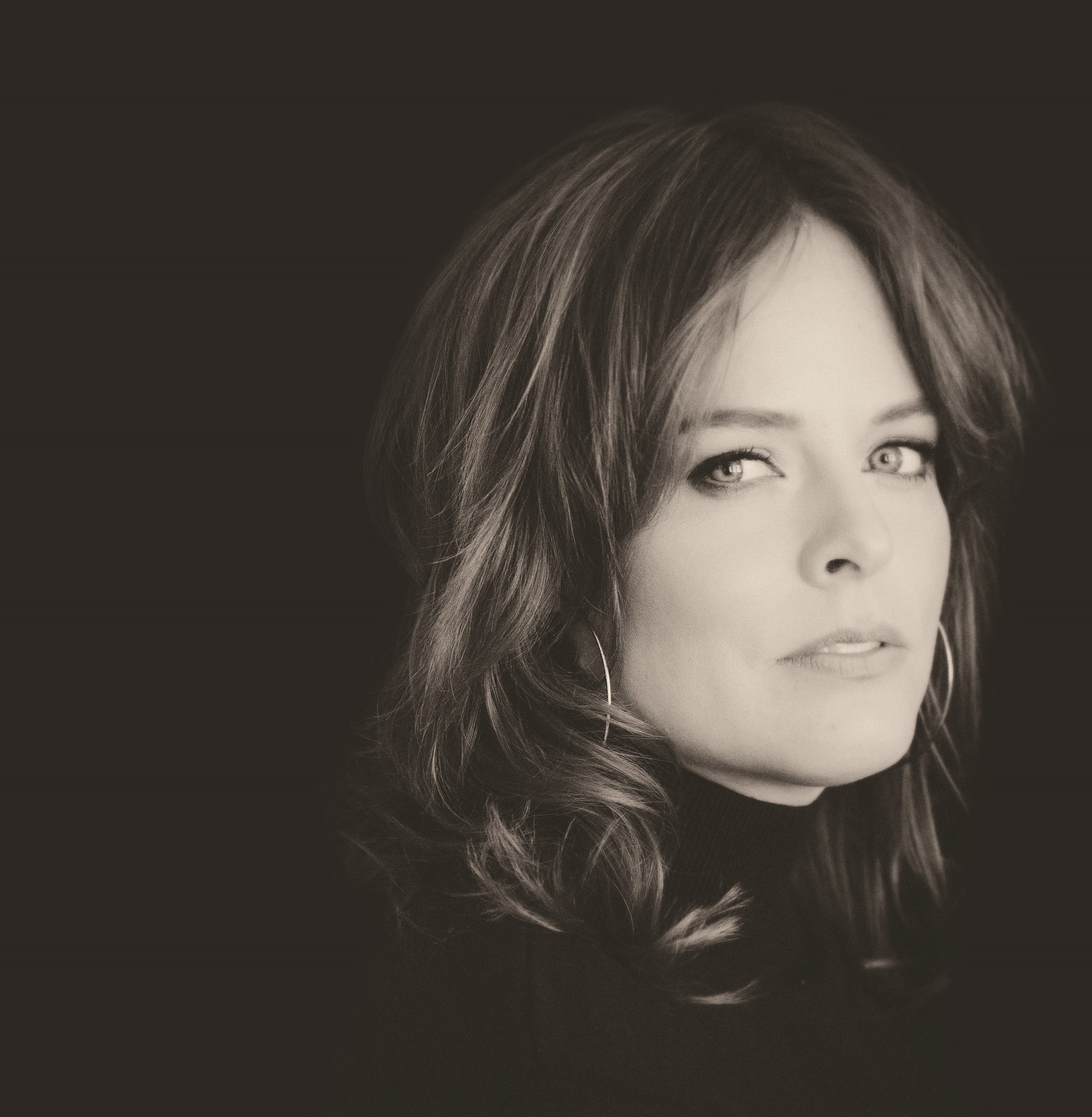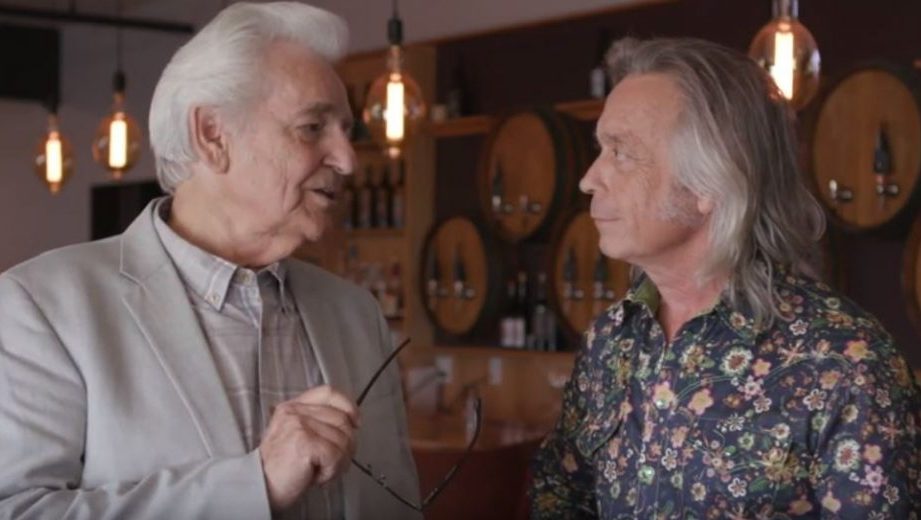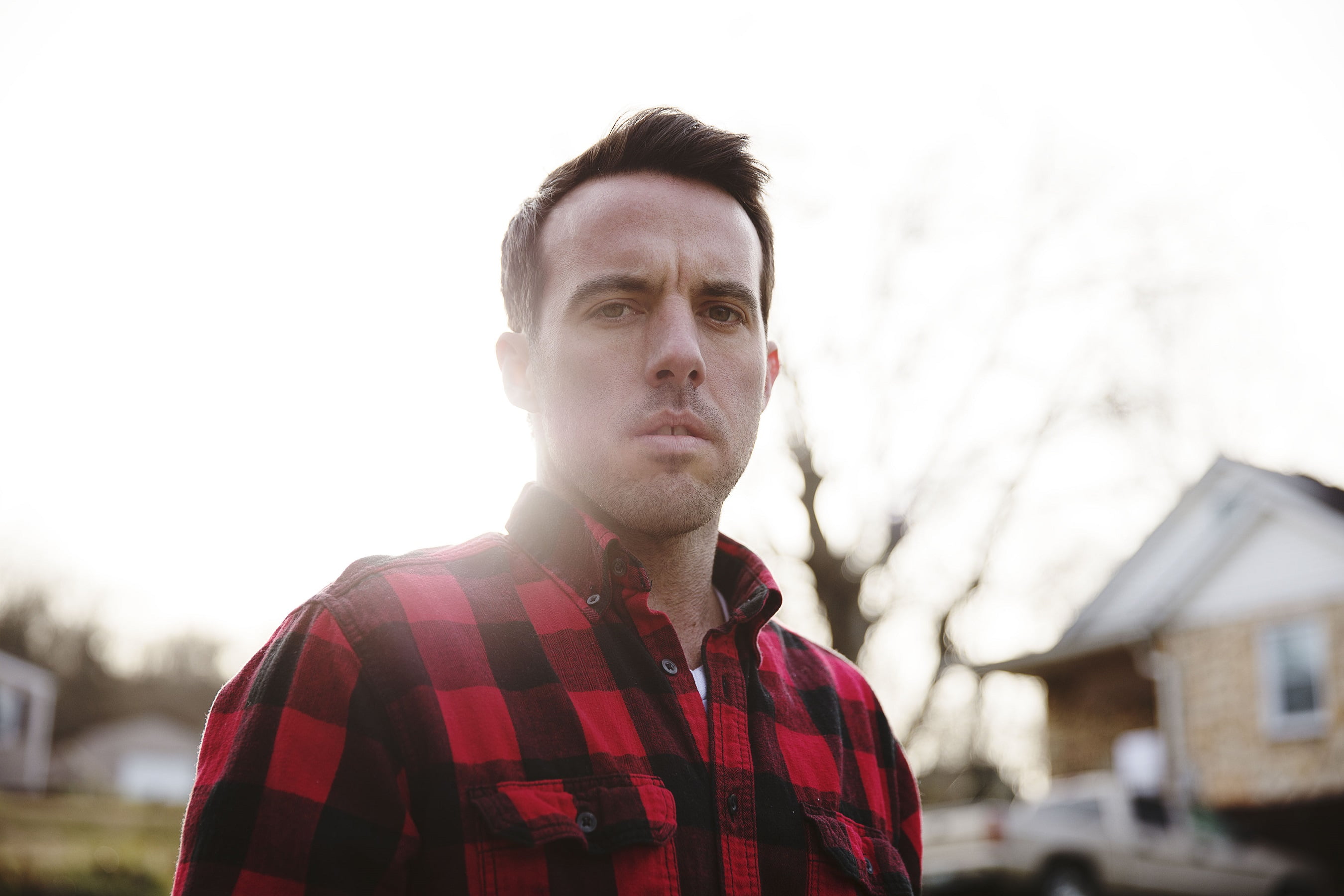Although she spent a decade living and playing music in Nashville, most notably as the bassist for bluegrass group Della Mae, Shelby Means is now settled in Charleston, South Carolina, where she says she appreciates being closer to her family and so much beautiful nature. Throughout a back porch Zoom call about her self-titled bluegrass album, she also praises her producer, Maya De Vitry, a fellow singer-songwriter and former bandmate of Means’s husband, Joel Timmons. To hear Means tell it, De Vitry helped her pull together the masterful band on the collection. The session players read like a who’s-who of bluegrass’ finest: Jerry Douglas, Billy Strings, Sam Bush, Molly Tuttle, Ronnie McCoury, Sam Grisman, Bryan Sutton, and on and on.
Granted, players such as these have a way of winding up in recording studios together. But rarely is the bass player at the mic, directing the traffic. So, to mark this rare occasion, BGS got Means on Zoom with bassist/songwriter/bandleader Bridget Kearney (Lake Street Dive, Joy Kills Sorrow), whose 2023 solo album Comeback Kid also had the bassist at the wheel.
When I see projects like yours, Shelby, I’m always interested in the community of it all. These folks play on a lot of people’s albums, but when somebody different is in the front, it shifts the vibe. It brings out something different. I hate to gender something like this, but there’s something different about feminine energy being out front, so I wanted to just start there.
Both of you have played in women-led projects. You’ve done solo stuff. You’ve backed up other people. And you’ve both been doing it a long time. What have you noticed about how the vibe changes, or how the community plays, when a woman is at the front?
Shelby Means: Well, Bridget, have you ever been the only woman in a band?
Bridget Kearney: Yes.
SM: I think I have, too. But when I was much younger. Then, when I moved to Nashville, it seemed like, even if the band was being led by a man, there was usually at least one other woman, which I found very useful and helpful. [There was] solidarity.
BK: Yeah, I feel like I’ve often been in bands that are a mix. Lake Street Dive is a mix, and Joy Kills Sorrow was a mix. So I guess the only thing I’ve never been in is an all-men band. I tend to like it when there’s a mix, when people are bringing all sorts of different perspectives into a band. When I’m putting a band together for a project, I’m always making sure I’m leaving all the possibilities open. I think that’s the most important thing: making sure everyone’s at least getting in the door to get interviewed.
SM: I think it’s super balanced when there’s men and women. It feels yin/yang. Like the whole thing is present.
Which is interesting, considering Della Mae is an all-women band. Do you feel like there was imbalance in that? Or like that’s just a whole different vibe.
SM: Yeah, it’s a whole different vibe. It was a great experience being part of an all-female band. We had some amazing opportunities because we only had women in the band. For example, going to Pakistan and being able to perform for colleges that were all women. It was some of those women’s first time ever seeing a [musical] performance … because they aren’t allowed to go out and see shows, especially unaccompanied. So those experiences were totally amazing and worth whatever it was that made it feel slightly imbalanced. … I’m very new to putting my own band together. But because I’ve enjoyed being in projects with a balance of male and female energy, I do kind of want to make sure that I get boys and girls, or however you identify. It doesn’t matter to me, you know.
Back to the community thing, though. I’m thinking about jams at festivals, and how bluegrass works. Somebody steps to the front and takes the solo and that kind of vibe is on this record. How did you feel to get to lead the band for the first time?
SM: It was amazing. And I want to give a lot of props to my producer, Maya De Vitry. When you think about her and I teaming up together, and calling Sam Bush, Jerry Douglas, Bryan Sutton, Ron Block—all the the big names on the record—and basically being in charge of them, that was something else. We respect them so much and look up to their music. … We’ve listened to that stuff growing up, so it’s really cool to be in a position of [directing] those cats. They totally respected Maya and me, and looked to us for direction like they were on the team. I remember Maya saying, before Day One, “Jerry Douglas is a human being. Ron Block is a human being. Maya De Vitry is a human being.” Like, we’re on the same playing field in the fact that we’re all humans. Obviously all of us feel nervous or scared at some point, so we can relate on those things and just take the pressure off a little bit.
We’re all in the folk roots, Americana, bluegrass, whatever you want to call it world, where everything is community-centric, and of course you’re touring all the time so you know people everywhere. But I think especially right now in the world, the idea of bringing people together with different skill sets to collaborate and make something beautiful feels really heavy and important. Heavy in a really good way. Do you feel like that is a priority to you, or does it feel more about just music and art for art’s sake?
SM: Well, they’re similar, those. I feel music for art’s sake is like music for the heart. I mean we have to [make music]. But it does help that we’re bringing people together. And hopefully people are gonna come out and see the show and we’ll have an experience at the show that can potentially transcend any sort of darkness or whatever it is that’s going on in each person’s [life] or the collective world. … I’ve had an experience recently where we’re watching a band. And just because I’ve had some grief and things going on in my life, it just was flowing. Like, I was crying and enjoying the concert. I was there feeling it with my bandmates, we were all together having a crybaby moment, letting our emotions go, and feeling safe in that environment to do that, which I think is very important.
BK: One hundred percent agree. I think the pause in live shows during COVID lockdown really highlighted that for me, because there was this long period where that wasn’t happening. The first time I went back to a music festival, the band that was playing before us was The War and Treaty. Same thing. I was just in tears, like this is so powerful. Their songs are so good. All these people came from far and wide, and they’re in the same place, and they’re singing along. It’s truly the most connective force that I see.
Both of you play bass, which requires you to be the support system for the band. I don’t know why it seems that upright bass is a male instrument more than other instruments. Maybe because it’s so big and it’s so low, and it’s harder to press the strings down. But can you talk a little bit about being, specifically, women bassists?
SM: We could probably talk for hours about that. It’s always fun whenever I get together with another bass player in general, because we often don’t [get together]. There’s many times where, if there’s somebody sitting in, it’s another fiddle player, another banjo player. Often another bass player isn’t asked to sit in, so we don’t get to hang out very frequently. But when we do, it’s really cool.
For me, growing up, my dad and my brother definitely enabled me. They would carry my bass around at jam sessions. At a certain point, when I was in high school and college, I had the gumption. I wanted to do it. I would carry the bass down the hall. I got one with backpack straps, so I would have to hunch over because the hotel halls are usually too short to fully stand upright and carry a bass on your back. You look like a little turtle. … I tried other instruments, but the bass was the one for me, despite its size and physical nature.
BK: For me, one thing that was influential with choosing the bass was that where were some examples in my life of women who played the bass. Actually, my first three bass teachers were women. There was an amazing bass player, Diana Gannett, who was teaching at the University of Iowa when I was growing up. She had a bunch of students who were undergrads or grad students that were in town, and those were the people that were accessible to take lessons from, when I was starting to play bass in junior high and high school. So that was lucky for me that it was just, like, normalized. I think that’s an important thing about representation on stage, making sure kids out there see versions of themselves doing all the jobs.
SM: Yeah, I don’t remember noticing any men playing the bass, but I remember the first woman that I saw playing the bass and thought I wanna do that. I think I can do that.
Let’s end with an easy question: What have you been listening to lately?
SM: I’ve been listening to some of the other new releases coming out. I’m With Her. And Leftover Salmon put out a record.
BK: MK.Gee and what else? I’ve been listening to some music from Morocco. It’s this Sufi Islamic healing music with this instrument that’s very similar to bass, called the gimbri. I did a semester abroad there in college and then was just back there recently for the first time since college. I’ve been getting into that music. It’s so cool.
Do you feel like that gets into what you’re writing?
BK: I think it definitely gets into the way that I play bass, because it’s an instrument that’s like the register of bass. It’s the only pitched instrument in the ensemble, so it’s extremely bass-forward music. It’s just this instrument and then percussion and singing, so the bass has this really central role. It’s very melodic and kind of percussive. Also, the front of the instrument is leather, so it’s kind of like a drum head. Sometimes you play a note with your finger but also use your other fingers to hit the drum. So you’re kind of playing bass and drum at the same time. That’s something I think very much influenced the way I play bass. Shelby, I’ll send you some.
SM: Yeah, send me some of that. That sounds awesome.
Photo Credit: Bridget Kearney by Rodneri; Shelby Means by Hunter McRae



